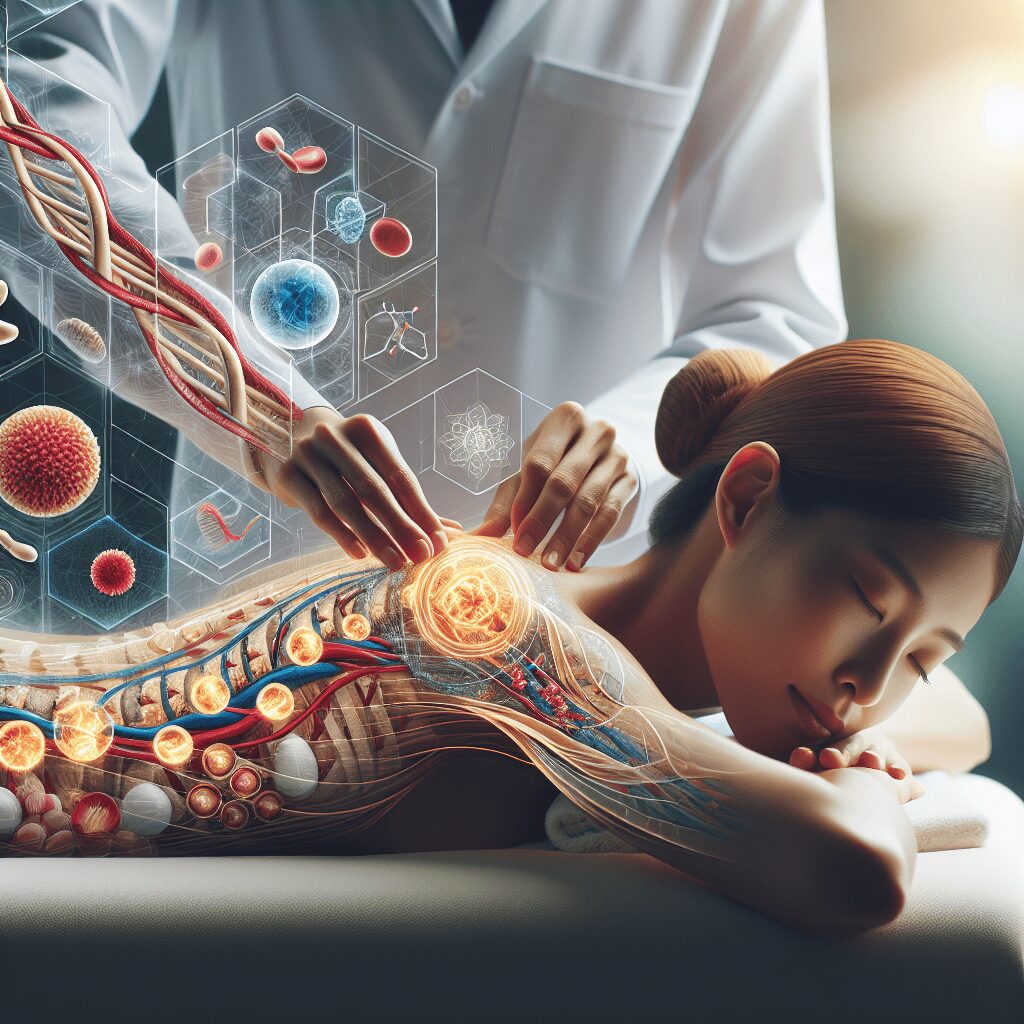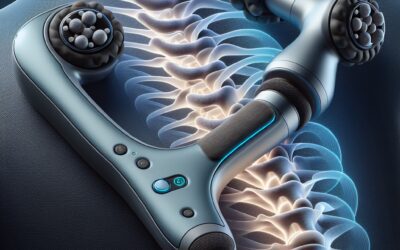The Benefits of Massage Therapy for Stress Reduction
Title: How Massage Can Help You? In the hustle and bustle of modern life, stress has become a common companion for many. The relentless pace of work, social obligations, and personal challenges can lead to a state of chronic tension that affects both mind and body. Amidst this backdrop, massage therapy emerges as a beacon of relief, offering a multitude of benefits for those seeking to reduce stress and enhance their overall well-being. Massage therapy, a practice rooted in ancient traditions, has evolved into a scientifically supported method for stress reduction. By manipulating the soft tissues of the body, massage therapists help to release physical tension, which, in turn, can lead to a decrease in mental stress. The gentle kneading and stroking movements during a massage stimulate the production of endorphins, the body’s natural feel-good hormones. This biochemical response not only promotes relaxation but also helps to improve mood, creating a sense of peace and tranquility. Furthermore, massage therapy has been shown to lower cortisol levels, the hormone associated with stress. Elevated cortisol can lead to a host of health issues, including sleep disturbances, weight gain, and a weakened immune system. By reducing cortisol, massage can help to mitigate these adverse effects, fostering a state of balance and harmony within the body. This hormonal adjustment is particularly beneficial for those who struggle with anxiety or depression, as it can provide a natural and non-invasive way to manage symptoms. The physical benefits of massage extend beyond the immediate relaxation of muscles. Chronic stress often leads to muscle tension and pain, particularly in areas such as the neck, shoulders, and back. Through targeted techniques, massage therapy can alleviate this discomfort, increasing flexibility and range of motion. This relief from physical ailments can contribute to a more relaxed mental state, as the body is no longer preoccupied with managing pain or discomfort. Moreover, massage therapy can enhance the quality of sleep, which is often disrupted by stress. The soothing effects of massage encourage a deeper and more restorative sleep pattern, allowing the body to heal and rejuvenate. A good night’s sleep is essential for cognitive function, emotional balance, and overall health, making massage an invaluable tool for those seeking to improve their sleep quality. The impact of massage on the autonomic nervous system also plays a crucial role in stress reduction. By activating the parasympathetic nervous system, massage promotes a “rest and digest” response, as opposed to the “fight or flight” response triggered by stress. This shift can lead to lower blood pressure, improved digestion, and a slower heart rate, all of which contribute to a state of calm and relaxation. In addition to these physiological benefits, the experience of receiving a massage can provide a much-needed mental break. The opportunity to disconnect from the demands of daily life, if only for an hour, allows individuals to recharge and gain perspective. This mental respite can be incredibly therapeutic, offering a chance to process emotions and emerge with a clearer, more focused mindset. In conclusion, massage therapy is a powerful ally in the battle against stress. Its ability to promote relaxation, reduce pain, improve sleep, and foster a sense of well-being makes it an effective and holistic approach to managing the stresses of contemporary life. Whether as a regular part of self-care or an occasional indulgence, incorporating massage into one’s routine can lead to significant improvements in both physical and mental health, proving that this ancient practice still holds relevance in our modern world.Improving Circulation and Promoting Healing Through Massage

Massage therapy is an ancient practice that has been used for thousands of years to promote relaxation, alleviate pain, and improve overall well-being. One of the most significant benefits of massage is its ability to enhance circulation and foster healing within the body. By understanding the mechanisms through which massage achieves these effects, individuals can make informed decisions about incorporating this therapeutic modality into their health and wellness routines. The human body relies on a complex network of blood vessels to deliver oxygen and nutrients to tissues while removing waste products. When circulation is compromised, whether due to injury, inactivity, or disease, the efficiency of this exchange diminishes, potentially leading to discomfort and delayed healing. Massage therapy addresses this issue directly by applying pressure and movement to the body’s soft tissues, which includes muscles, tendons, and ligaments. This manipulation encourages blood vessels to dilate, or widen, which enhances the flow of blood and lymphatic fluid throughout the body. Moreover, the rhythmic pressure exerted during a massage helps to push blood through congested areas, while the release of this pressure causes new blood to flow into these tissues. This flushing process not only delivers fresh nutrients but also assists in the removal of lactic acid and other metabolic waste products that can accumulate in muscles after exercise or as a result of chronic tension. Consequently, massage can be particularly beneficial for athletes or those with physically demanding lifestyles, aiding in recovery and reducing the risk of muscle soreness and fatigue. In addition to improving circulation, massage therapy has been shown to promote healing in a variety of ways. For instance, the increased blood flow and nutrient delivery can accelerate the repair of soft tissue injuries, such as strains or sprains. The gentle stretching and kneading of muscle fibers during a massage can also help to break down scar tissue, which may form as a result of injury or surgery. By improving the elasticity and condition of scar tissue, massage can enhance mobility and reduce the likelihood of future injury. Furthermore, the stimulation of the body’s soft tissues during a massage triggers the release of endorphins, which are the body’s natural painkillers. This release can lead to a reduction in pain perception and an increased sense of well-being. The relaxation response elicited by massage also has a calming effect on the nervous system, which can help to alleviate stress and anxiety. This state of relaxation can further contribute to the healing process, as stress has been shown to impede recovery and exacerbate pain. It is important to note that while massage can be a powerful tool for improving circulation and promoting healing, it is not a panacea. Individuals with certain medical conditions, such as deep vein thrombosis or severe osteoporosis, should consult with a healthcare professional before seeking massage therapy. Additionally, finding a qualified and experienced massage therapist is crucial to ensure that the treatment is both safe and effective. In conclusion, massage therapy offers a non-invasive and holistic approach to enhancing circulation and fostering the body’s natural healing processes. Through the skilled application of pressure and movement, massage can help to alleviate pain, reduce stress, and improve the function of the body’s circulatory and lymphatic systems. As part of a comprehensive health and wellness plan, massage can play a vital role in maintaining physical health and promoting recovery from injury or illness. Whether seeking relief from chronic pain, recovering from an injury, or simply looking to improve overall health, massage therapy may provide a valuable and therapeutic benefit.





0 Comments